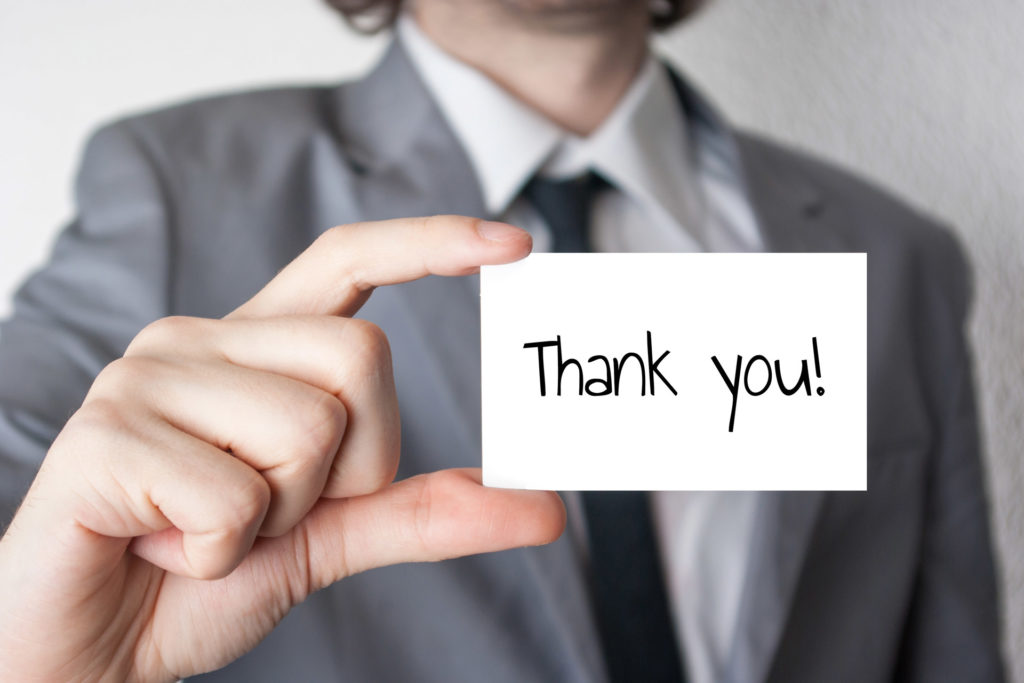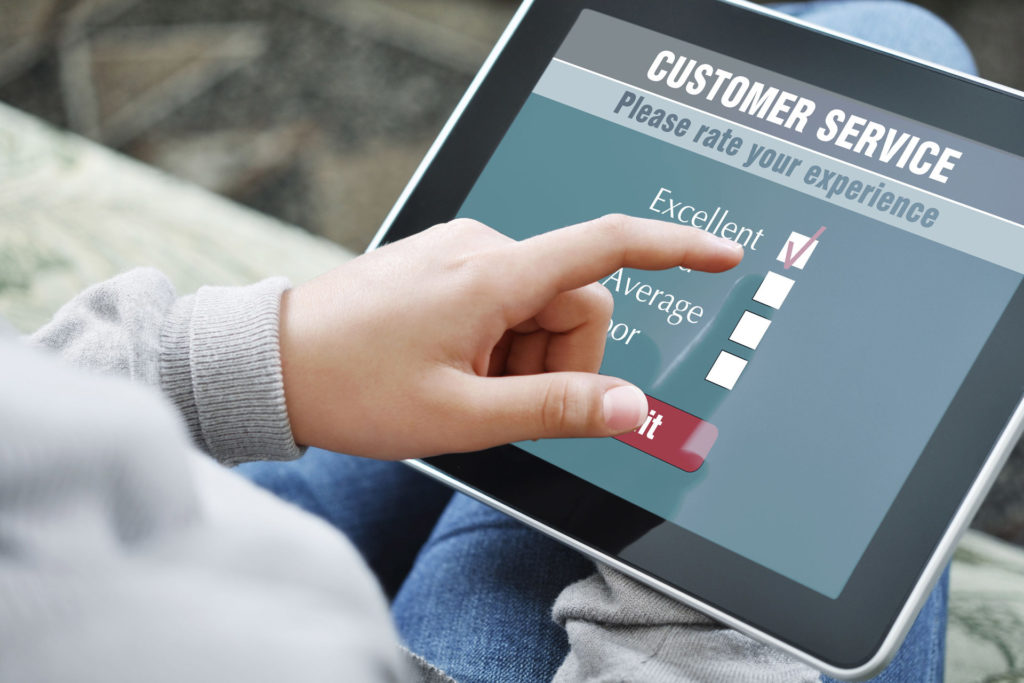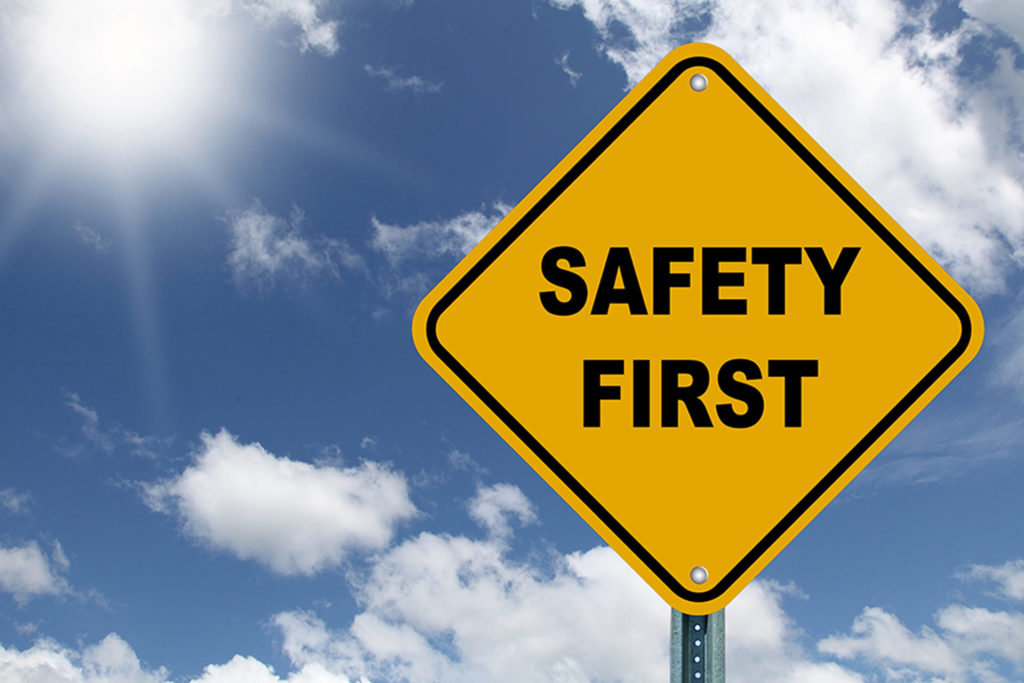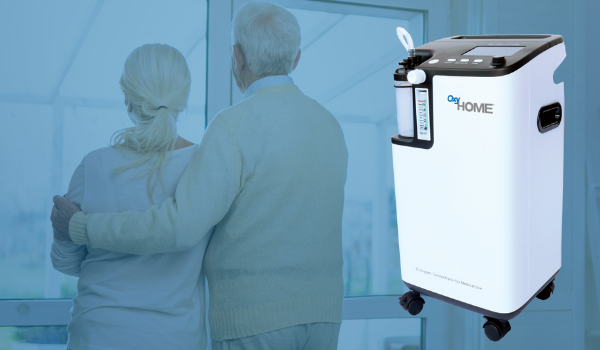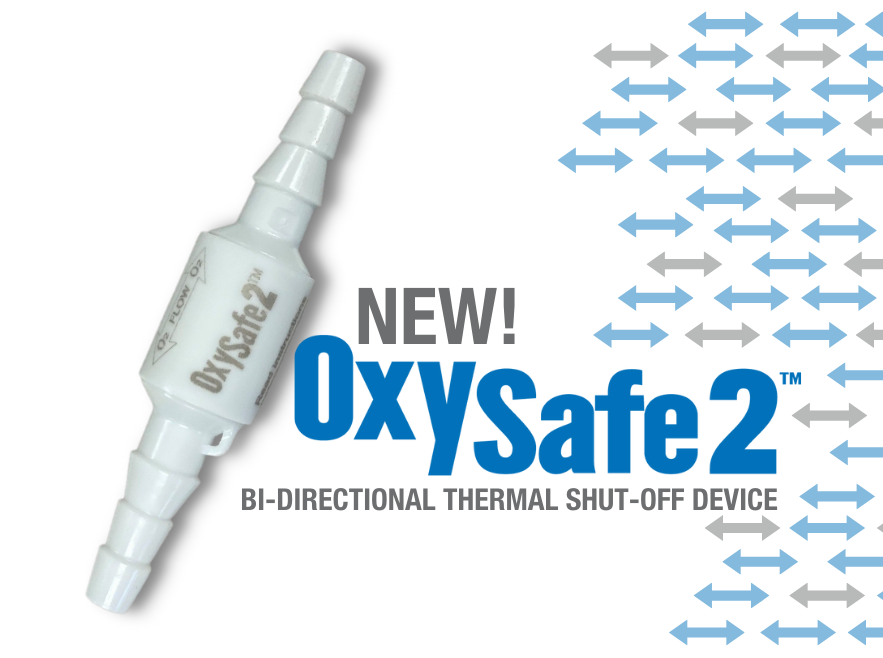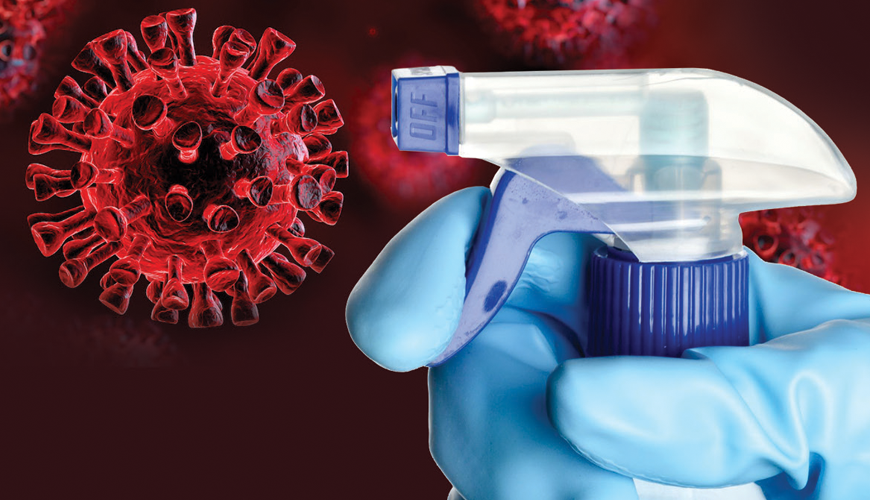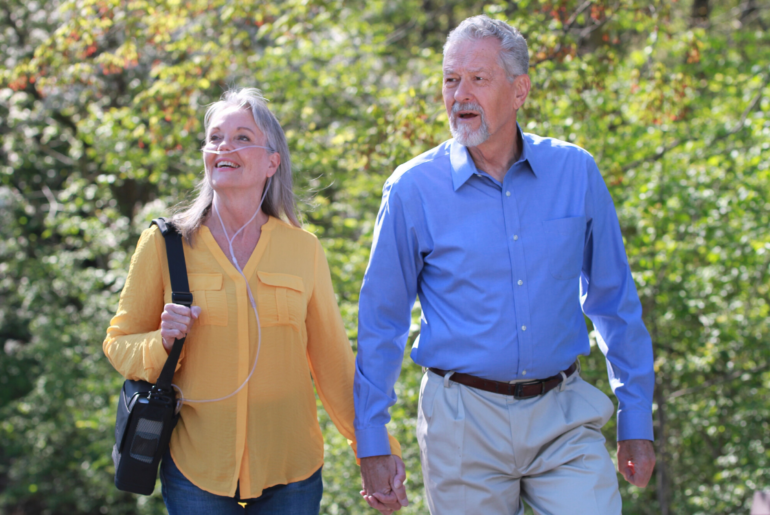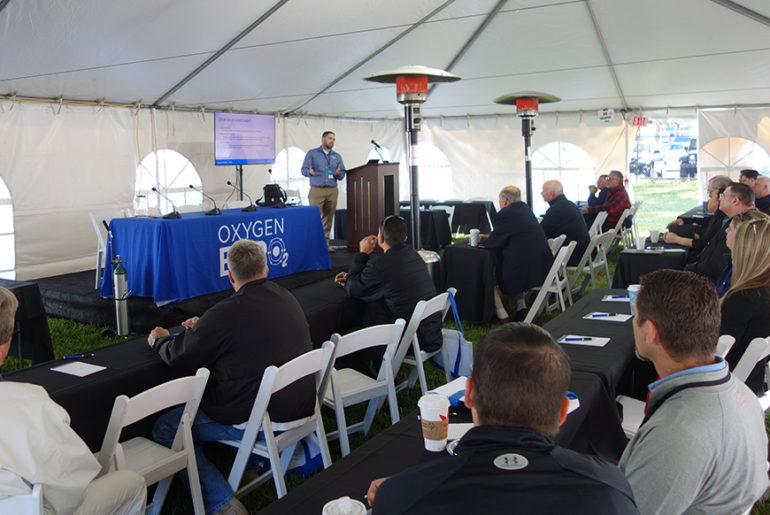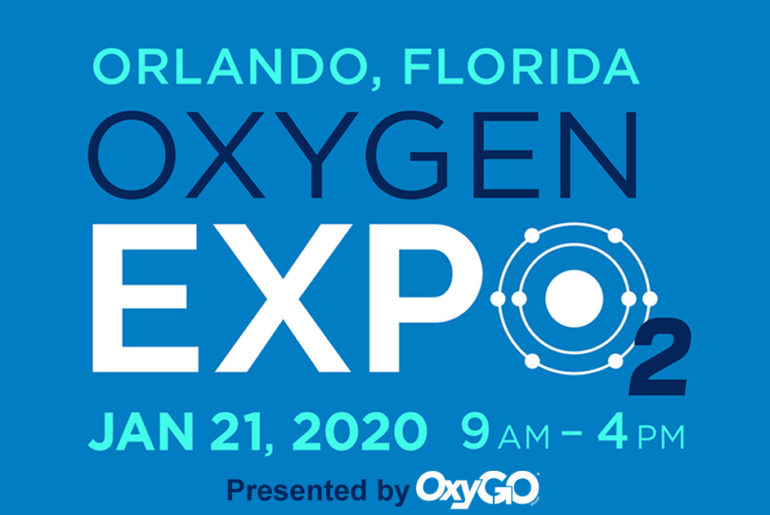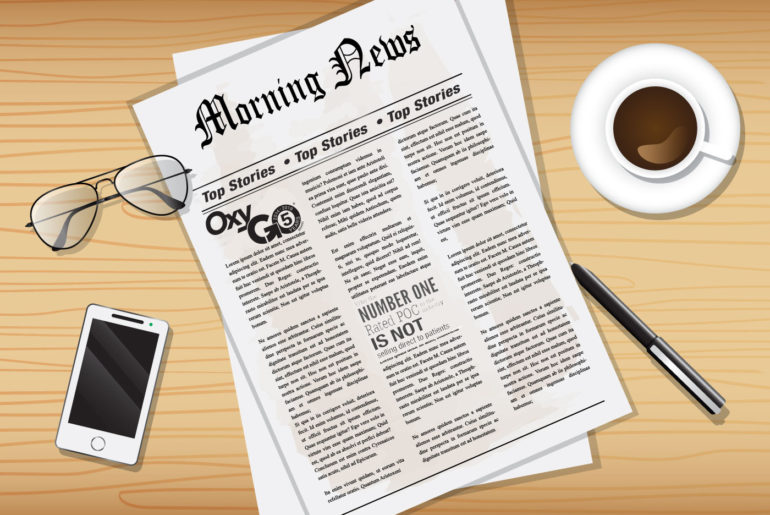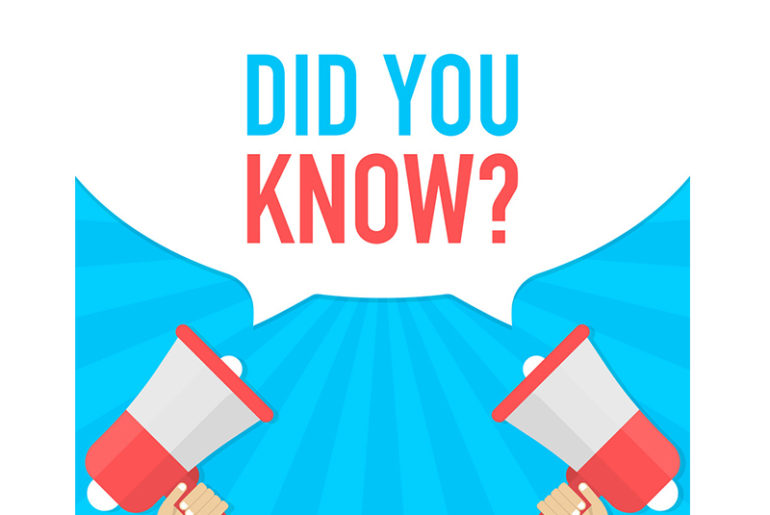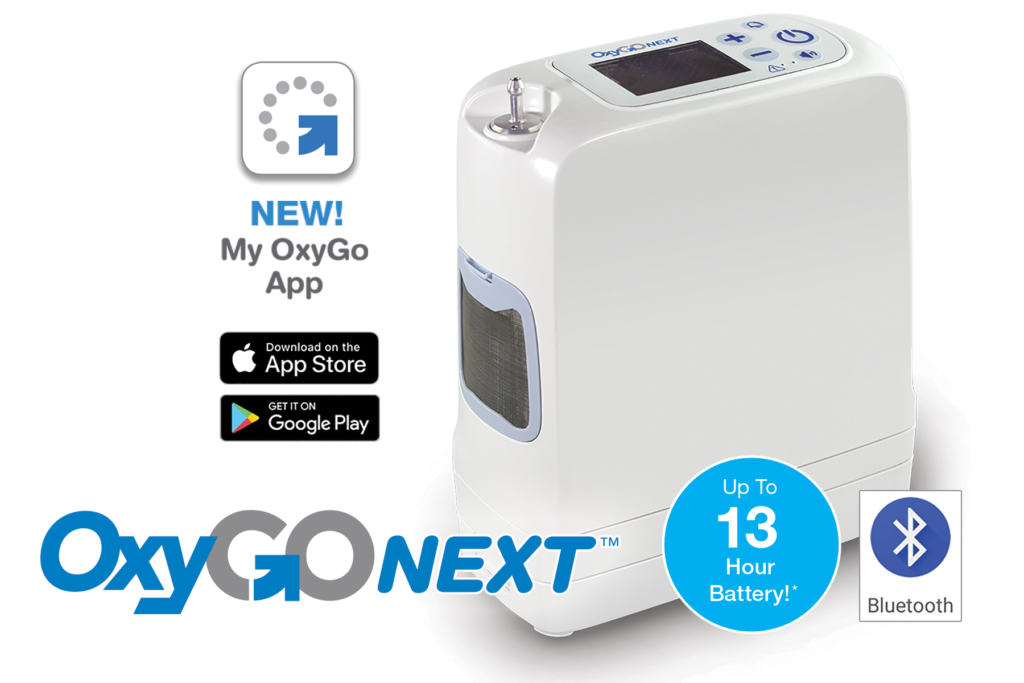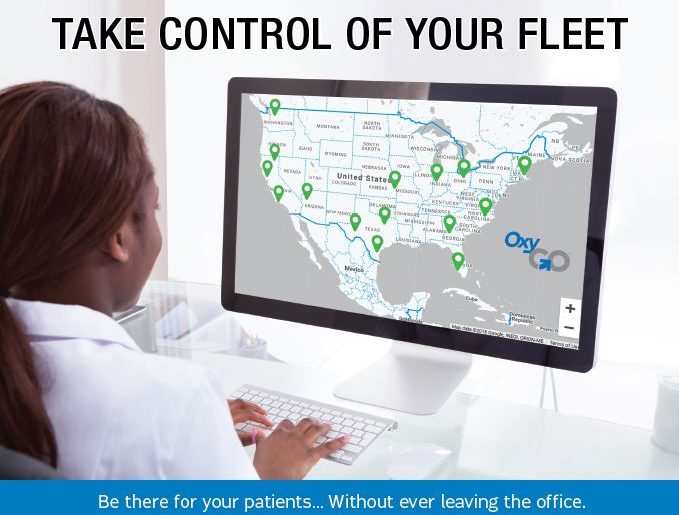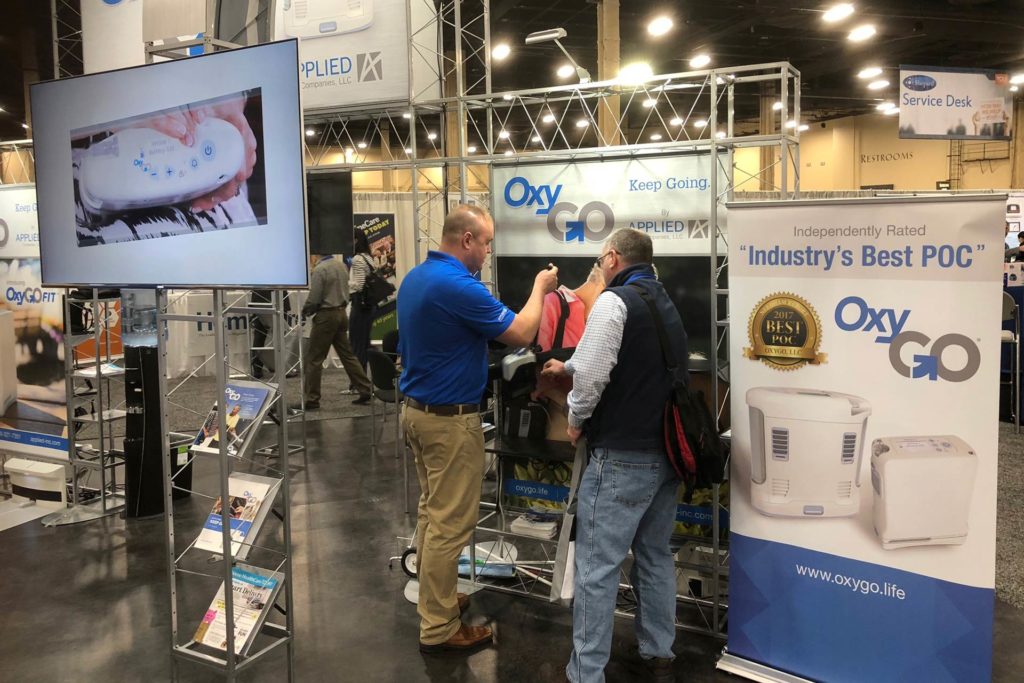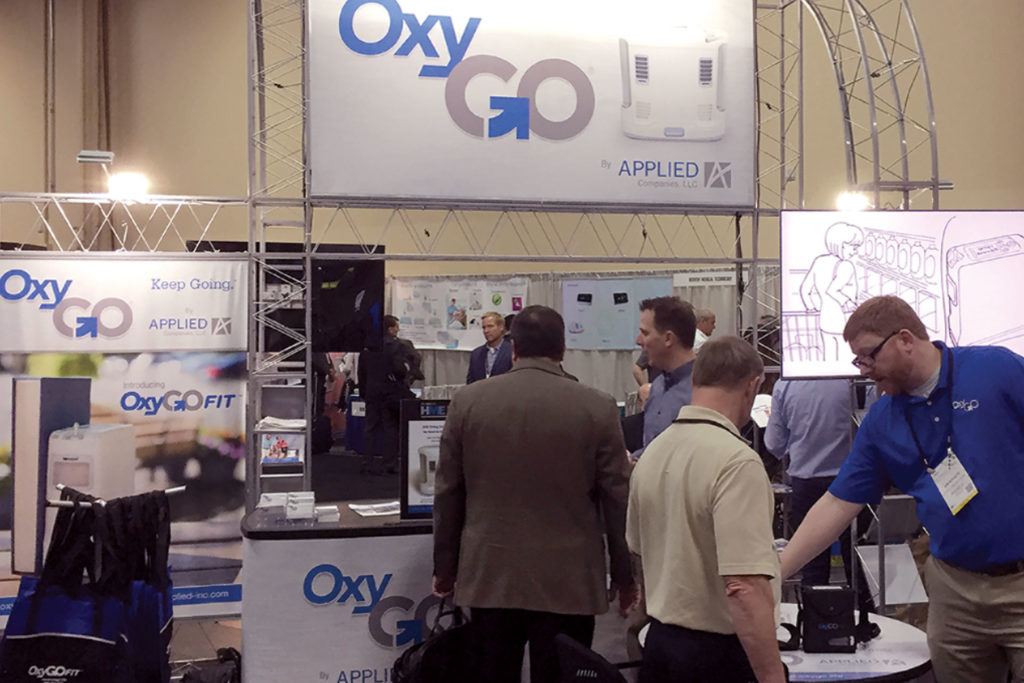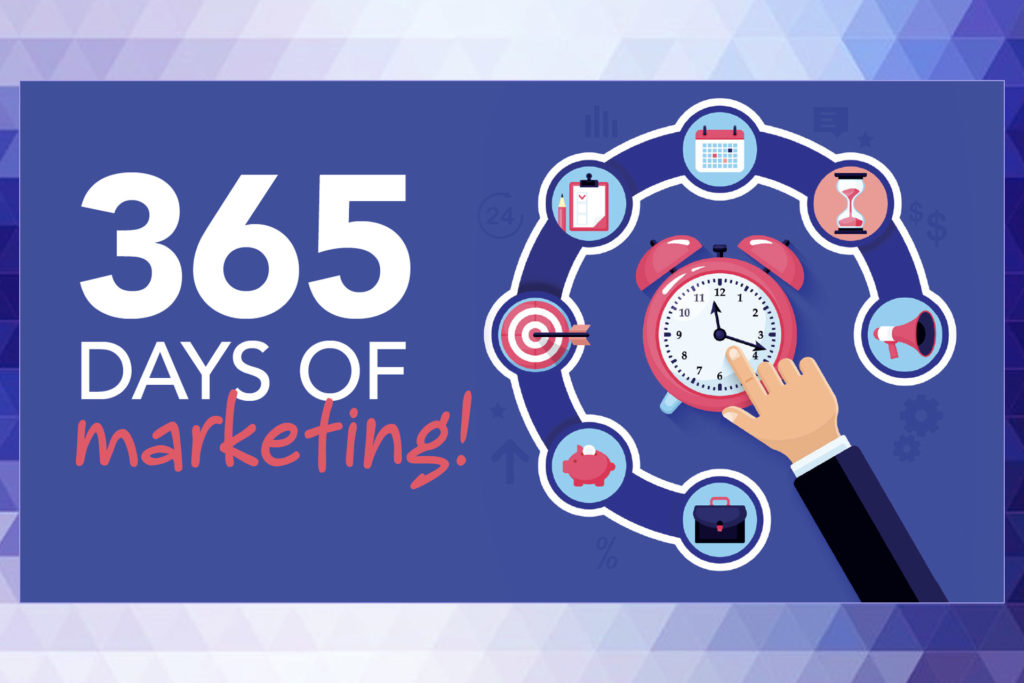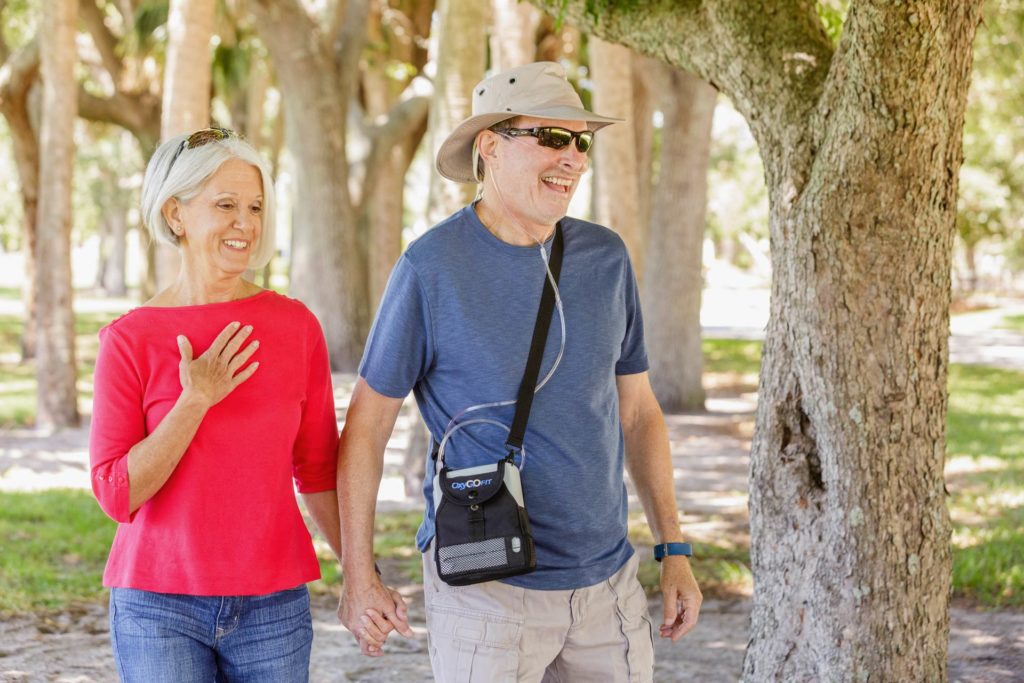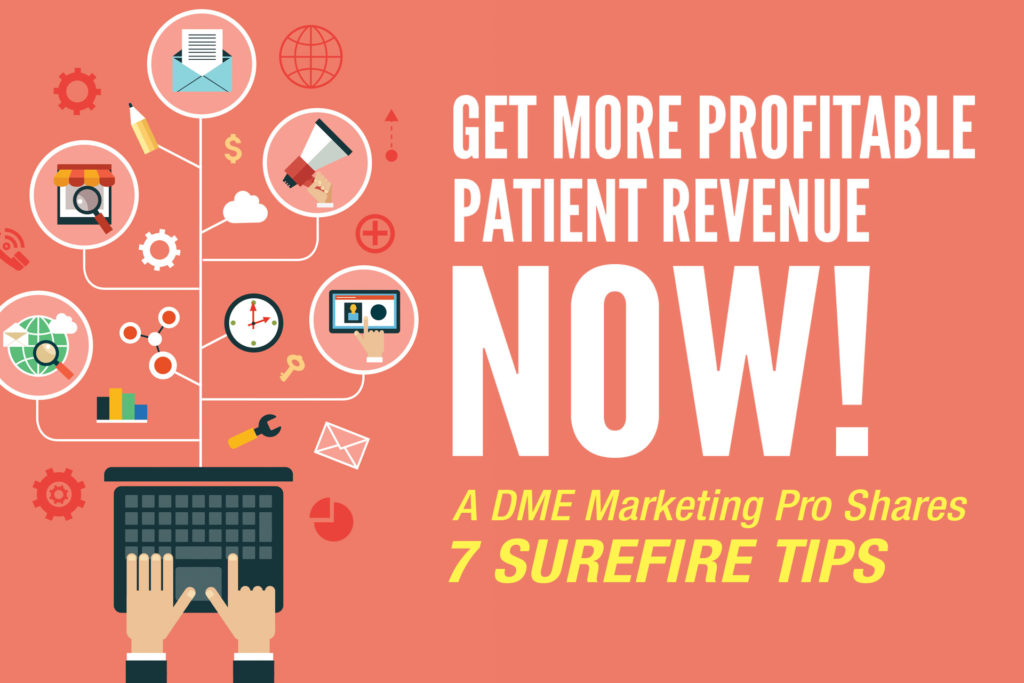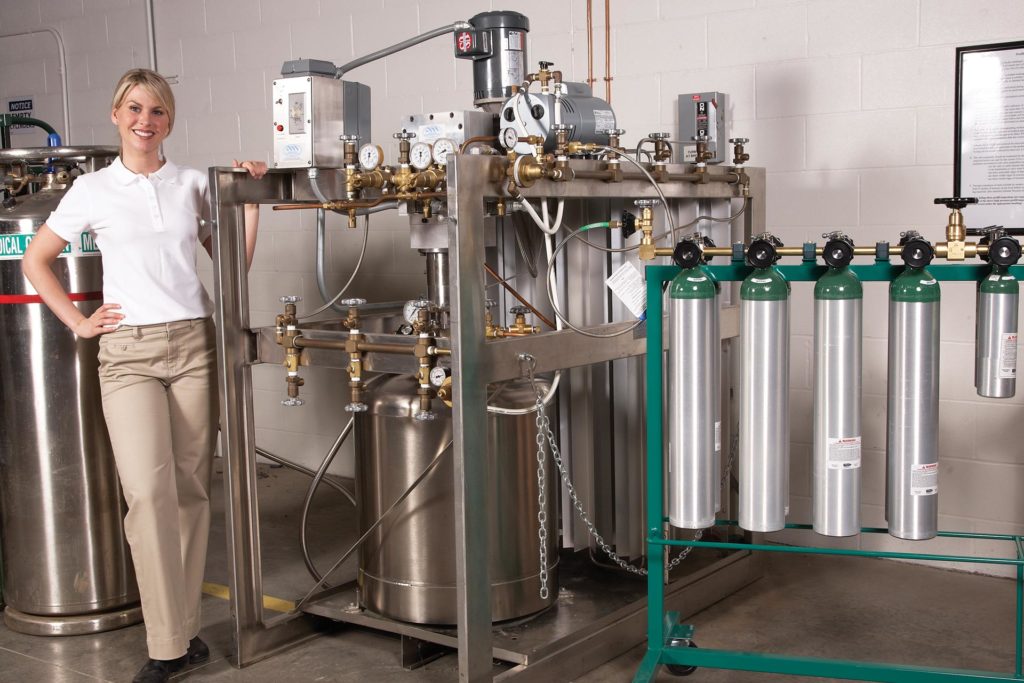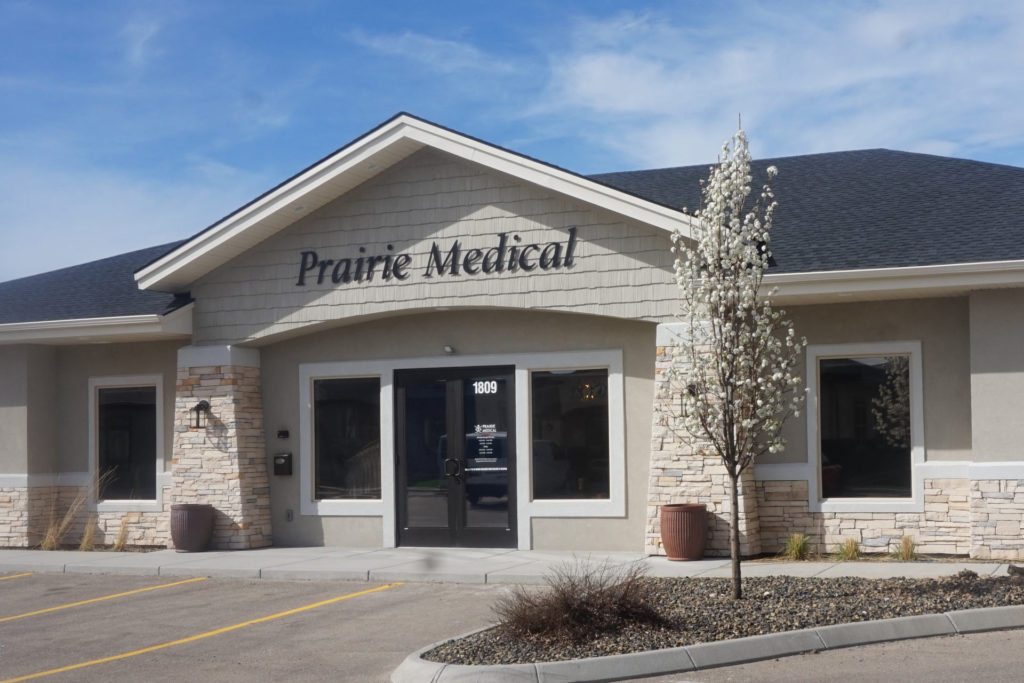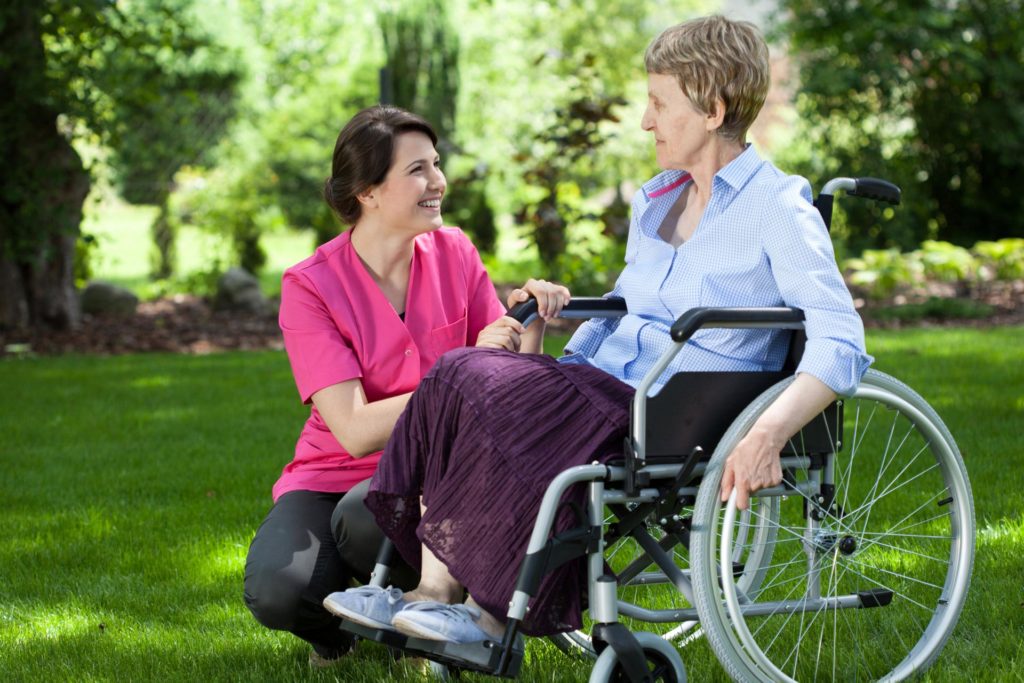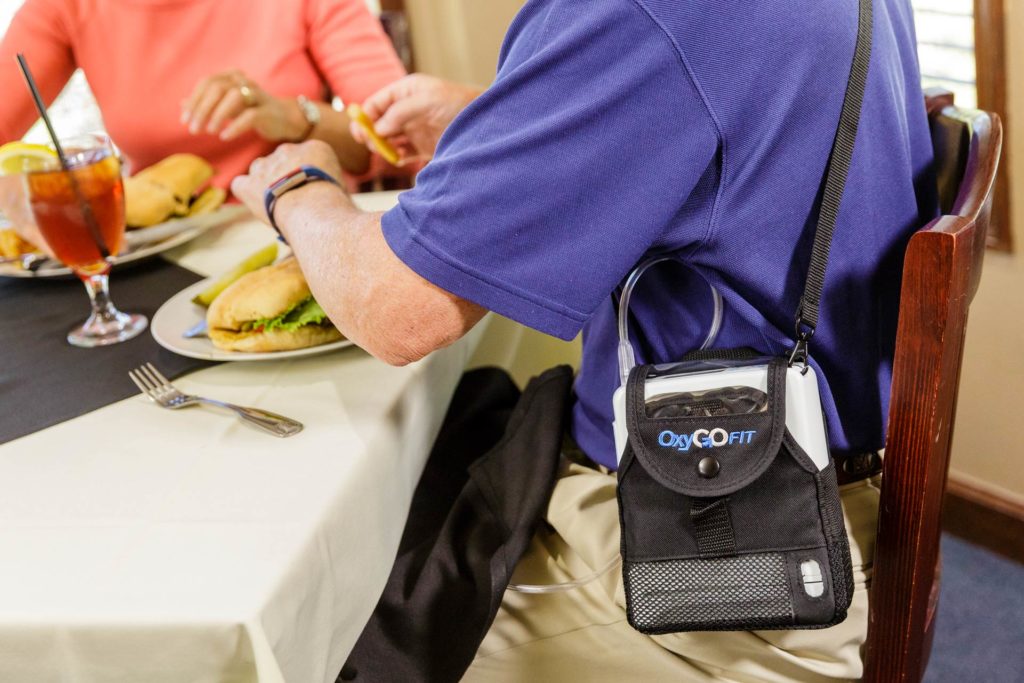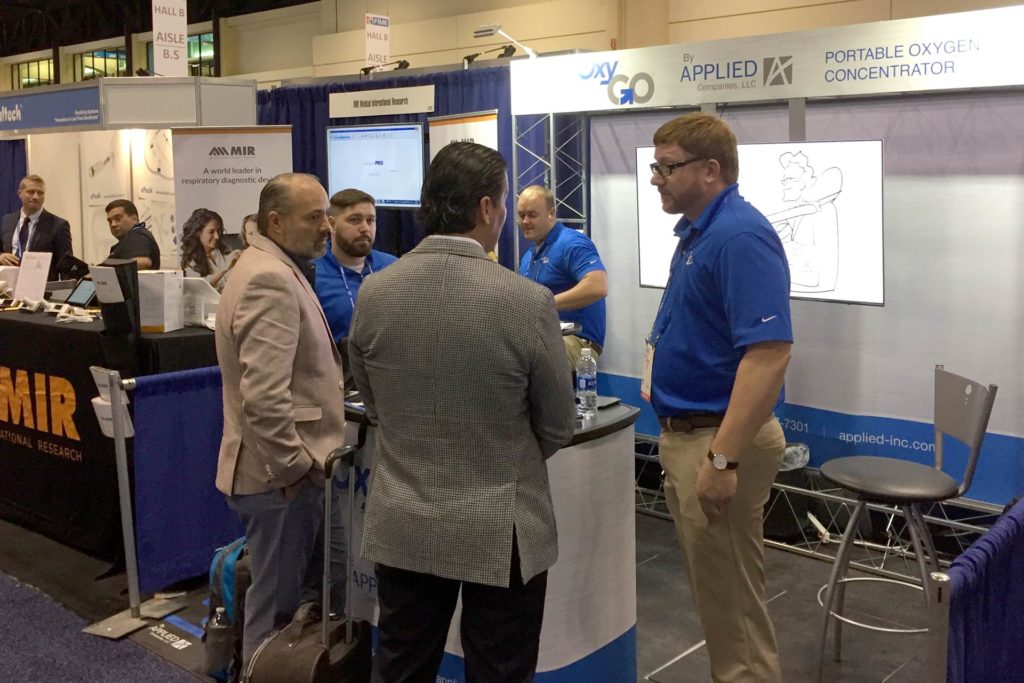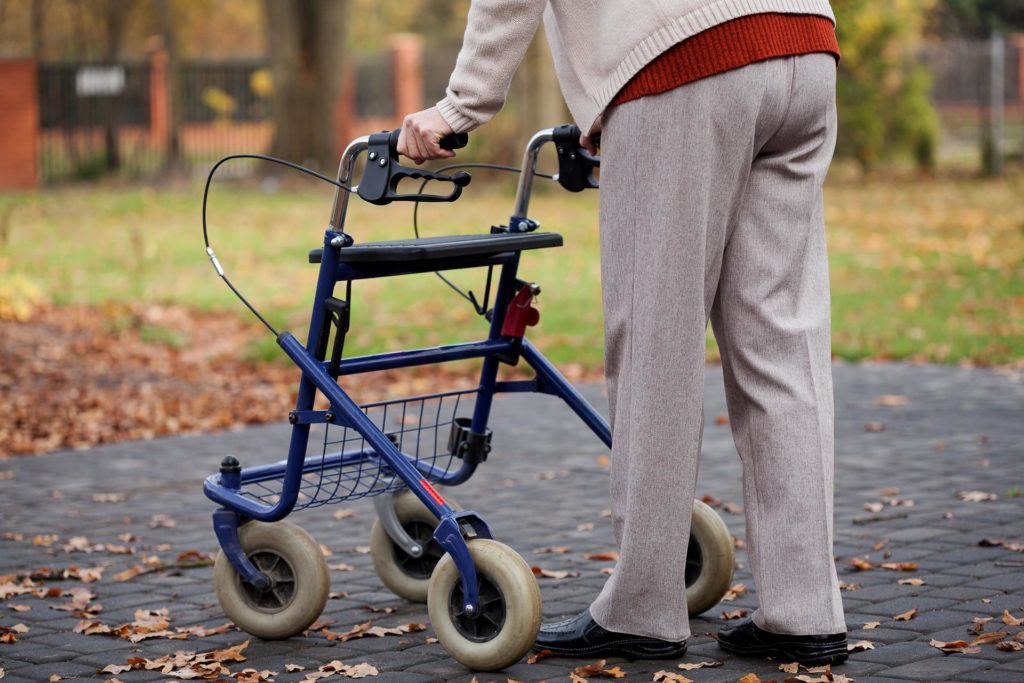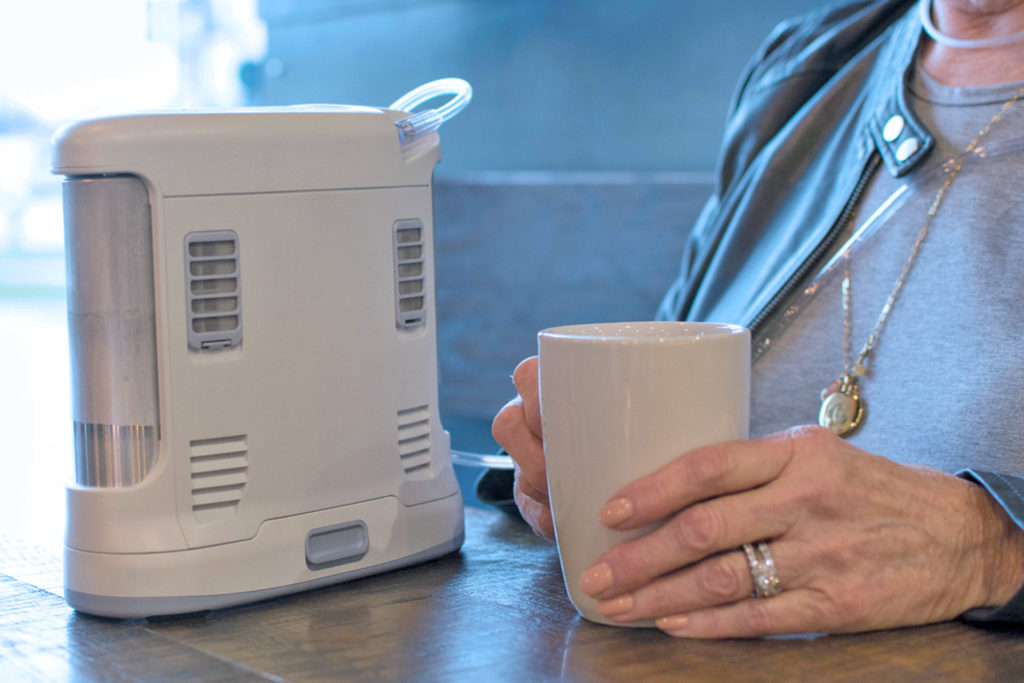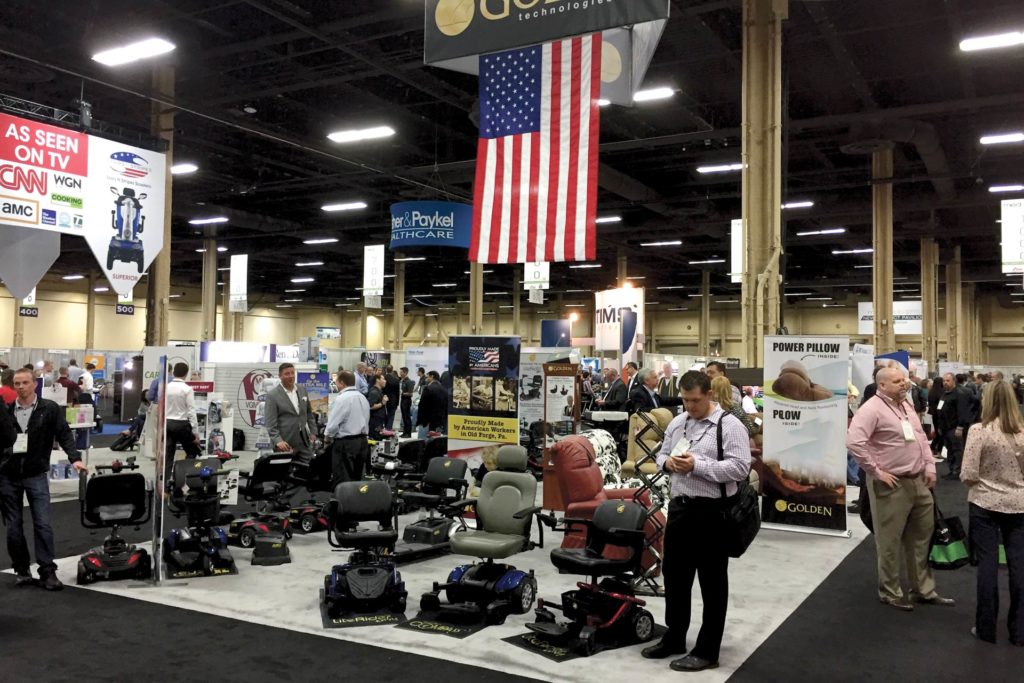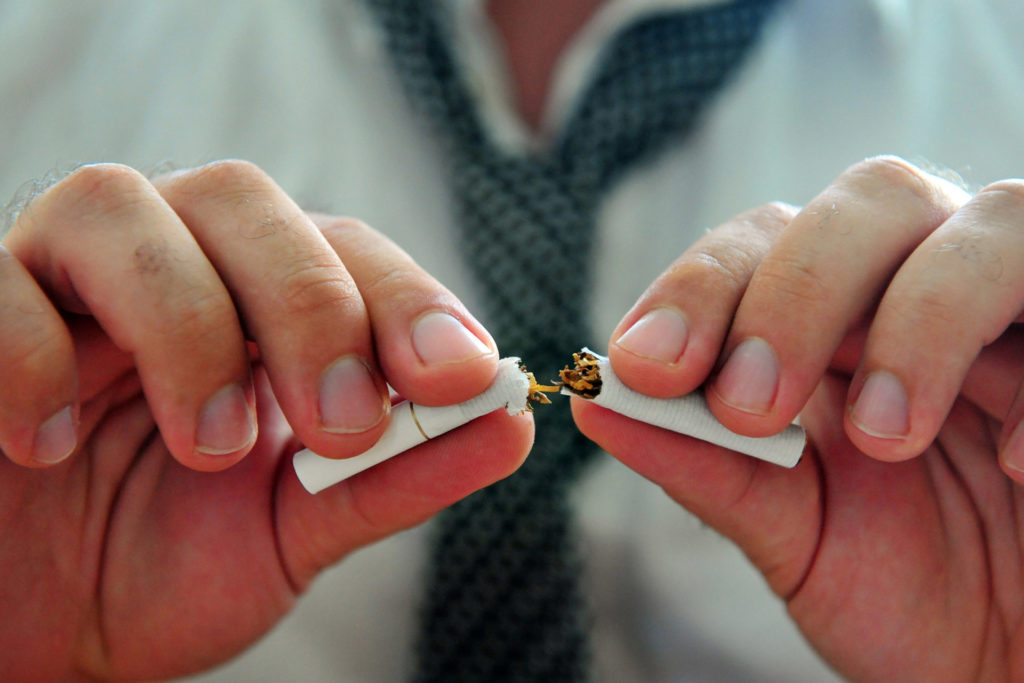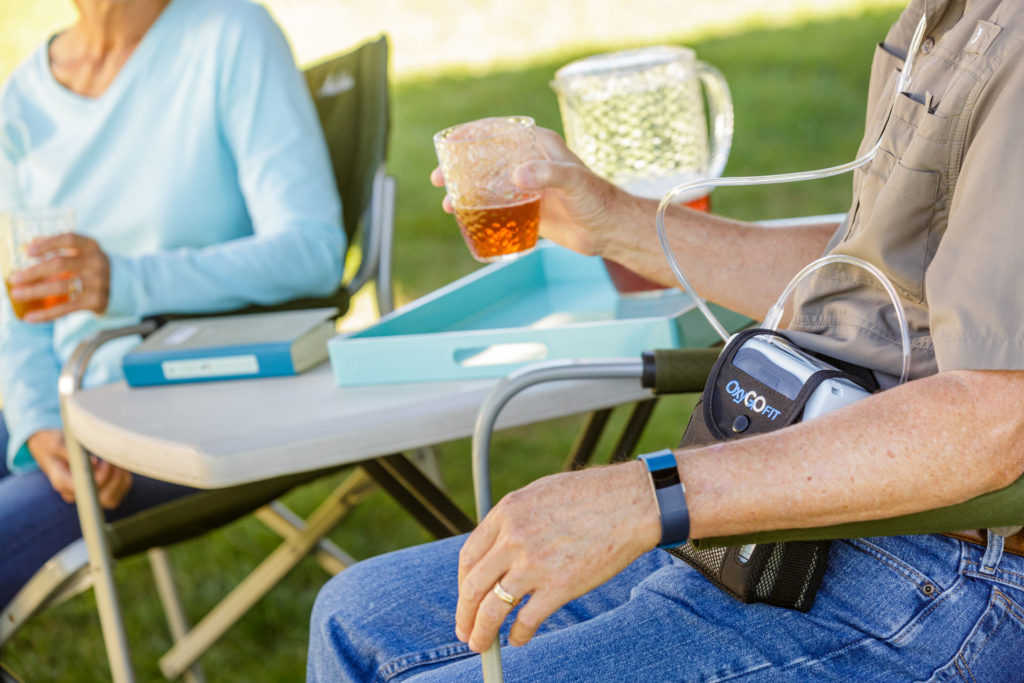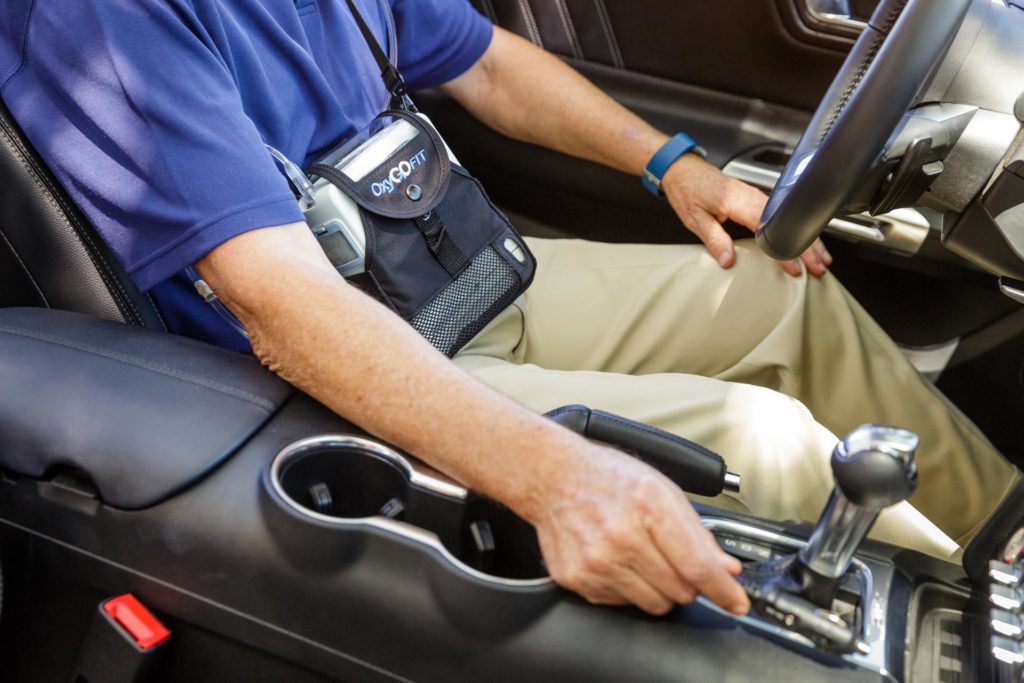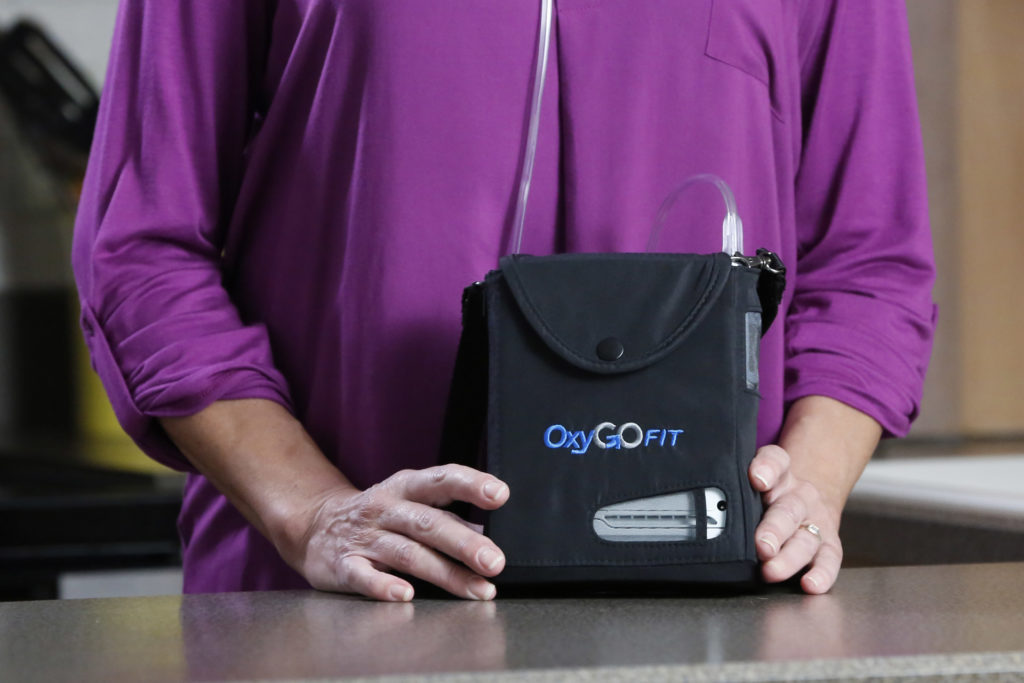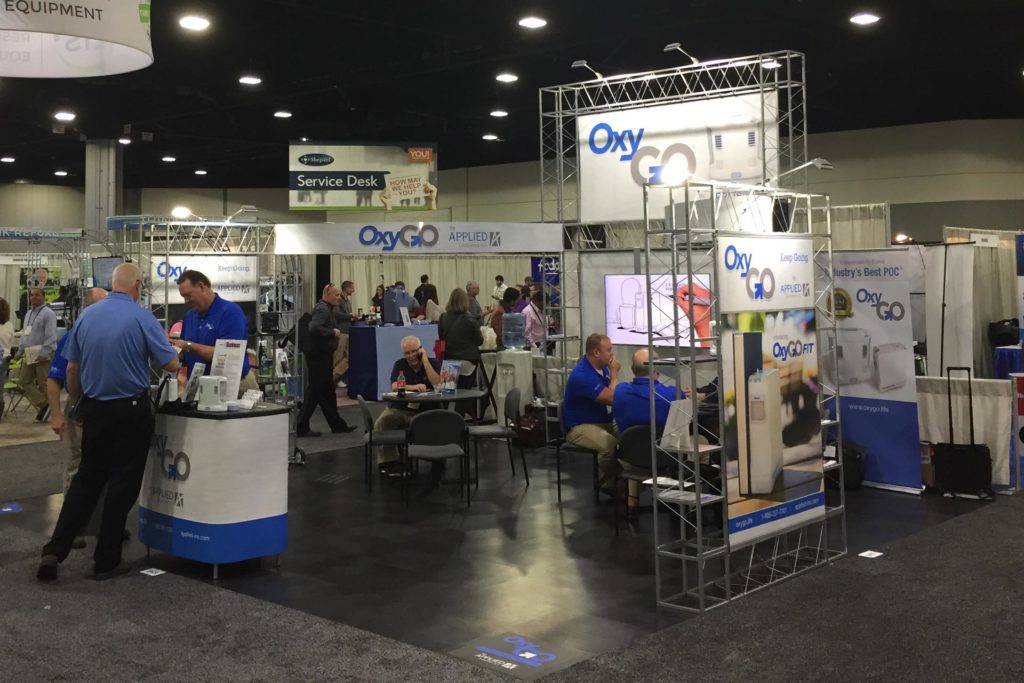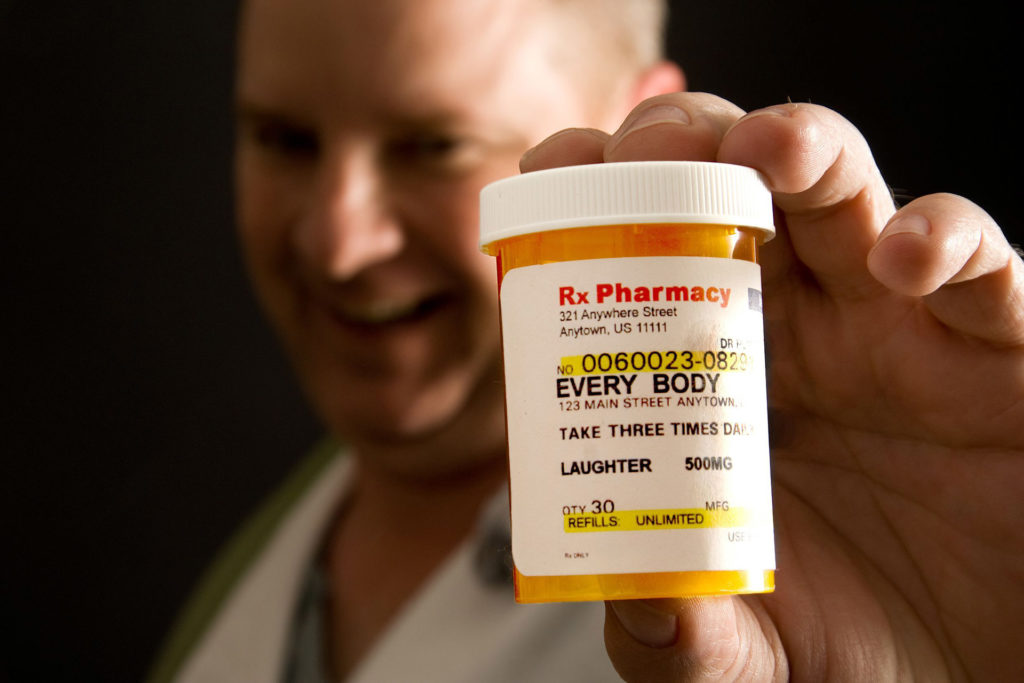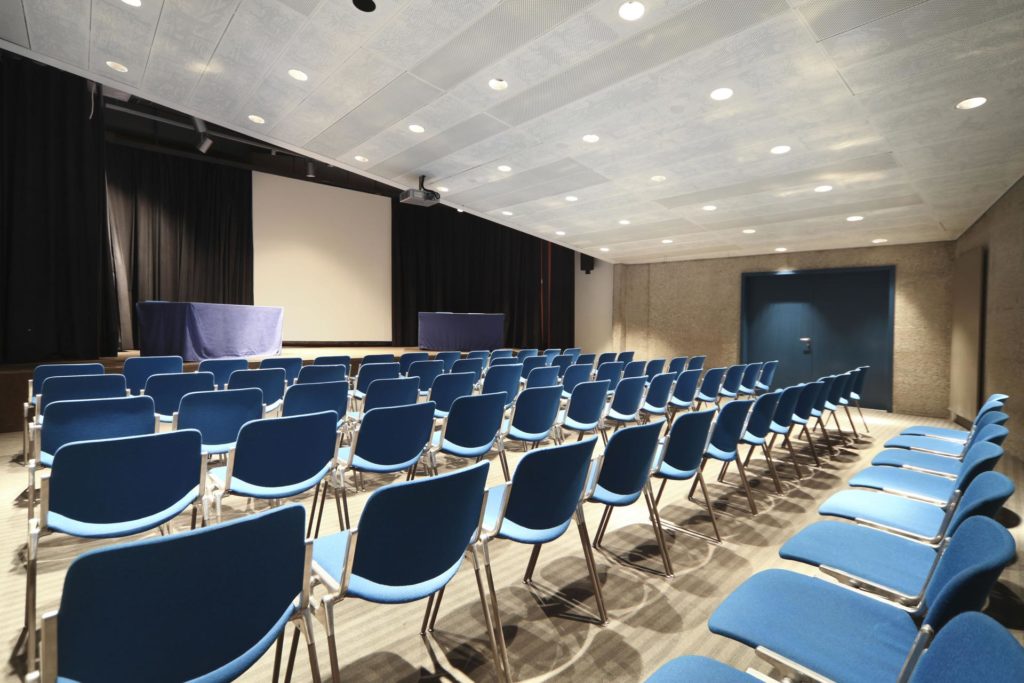Category: Customer Service
Does Today's Technology Make You Feel Lonely?
I was listening to some “oldies but goodies” on the radio recently and lyrics from Roy Orbison’s “Only the Lonely” (1960) have been sticking in my mind … Only the lonely (dum-dum-dum-dumdy-doo-wah) Know the way I feel tonight (ooh-yay-yay-yay-yeah) Only the lonely (dum-dum-dum-dumdy-doo-wah) Know this feelin’ ain’t right (dum-dum-dum-dumdy-doo-wah) Those lyrics resonate with me because, in many ways, today’s technology can make you feel lonelier than ever. It’s supposed to make you feel more connected—but does it? This is a peculiar kind of loneliness where technology allows you to tune out those around you and isolate yourself in the endless sea of Google. I see people buried in their cell phones in restaurants, on planes, in their cars, even at Disney World with their kids on rides. You’ve probably seen it happen dozens of times in your DME stores. And as Roy sang it, you probably have a sense every now and then that “this feelin’ ain’t right”. But there’s hope! You never have to feel lonely with OxyGo®. We are with you 24/7. If you have a POC question and can’t get in touch with one of our reps, call me on my direct line: 440-788-4099. As OxyGo’s Managing Director, my highest priority is always to take care of you first. And feel free to c
Providing That “Perfect” Customer Service Experience
Good customer service is the most important value your company can provide to your customers. In a typical transaction, your customers expect everything to go smoothly, without delays or problems. For the purpose of this article, let’s call this “perfect” customer service. Customers simply expect their transactions to proceed in a timely manner with no surprises and without glitches. Any variation or miscue from their expectations usually ends in a negative experience which could cost you a customer—and no one wants that to happen. The good news is that you don’t have to deliver a life changing customer service experience… just a “perfect” one. Here’s a customer service story I heard long ago. It’s a great example of both perfect and horrendous customer service happening at the same time. A lady flew into the Denver airport, rented a car and checked into her hotel. She was scheduled to be the keynote speaker at a conference the following day at another location. The next morning she discovered her car would not start. She returned to the hotel lobby front desk to use a courtesy phone to call the rental car company. “Sorry lady, there’s nothing I can do at this moment,” said the car agent. She pleaded and told him she had an important meeting to get to and needed a replacement car right away. After receiving
The Art of "Please" and "Thank You"
The late great Alabama football coach Bear Bryant once made an observation always worth remembering: “It doesn’t cost anything to be nice to people.” This comes to mind because one of our writers recently visited a Florida based DME to purchase CPAP related equipment. The sale went through, the equipment was purchased, the mission was accomplished… Or was it? The writer will never purchase from that particular DME again. Why? Because he said basic manners were missing from that provider. The phones were ringing and the sales person kept him waiting while answering them. In the end the sale was made, but it was made in a hurry. And worst of all, our writer reports no one ever thanked him for his business, no one welcomed him to that store, no one ever said “Please, may I help you?” One of my English teachers once suggested that the three most important words in the English language might well be “Please” and “Thank you.” Yet she noted a sense that they were becoming archaic in our vocabulary. It costs nothing to say “Please” and it costs nothing to say “Thank You.” Yet more and more, it’s hard not to notice that people around us are frequently forgetting to say those simple words. Perhaps it is because our lives are so stressful and busy today that many of us forget basic manners under press
More Tips for your Traveling Oxygen Patients
Just because a patient is on oxygen doesn’t mean that they are stuck at home and cannot travel. On the contrary, today it is much easier for the typical oxygen patient to travel by car, train, plane or cruise liner. Before the jet setting begins, here are a few tips you should advise your patients about before they leave home—to make it easier for both of you to breathe easy during any trip! Have the patient check with their doctor first. Patients need to consider avoiding places with extreme hot or cold temperatures, and places such as large cities with heavy pollution. Patients should keep a copy of their prescription with them. If their oxygen equipment malfunctions, a copy of the prescription will make acquiring a backup source of oxygen much easier to obtain. Patients who travel with a POC should carry a letter of necessity for oxygen with them. The FAA requires this when taking portable oxygen concentrators on board and they will have to show this to them when checking in. If traveling by air, a POC is the only way to go. High pressure cylinders and liquid vessels are not allowed onboard aircraft. The only approved oxygen source permitted on today’s flights are portable oxygen concentrators, and the FAA must approve each POC individually. The back label of the POC will have the FAA approval listed. Most airlines require that you have enough extra battery li
‘Hail’ to Keeping All Your Patients Going!
Jim Harbaugh, the football coach at my alma mater, the University of Michigan, has a favorite saying: “Attack each day with an enthusiasm unknown to mankind.” People I know who know Jim tell me that motto describes Jim perfectly. He is always upbeat, his glass is always half full, he is always looking at each new day as an opportunity to do better than the day before. And he wins big wherever he goes: at the University of San Diego... at Stanford... with the San Francisco 49ers... and now with Michigan. The dictionary defines “enthusiasm” as an occupation, activity or pursuit in which interest is shown. If you and your healthcare associates are enthusiastic — it’s like winning. The food tastes better. The days go quicker. More effective leadership. So take a lesson from Jim. Find a reason or multiple reasons to be enthusiastic. They are always there, but sometimes you need to choose to see them. At OxyGo, for example, we are super enthusiastic about our new OxyCare Total Advantage™ patient financing program. We know it will help increase your POC sales dramatically. Your customers who prefer small monthly payments will be able to walk out the door with an OxyGo unit they might not otherwise have been able to afford. Payments can be as low as $63 a month. And talk about a reason to be enthusia
The World’s Shortest Definition of Economics
Once upon a time, in a kingdom far away from audits and competitive bidding, there lived a king and his beautiful daughter, Lysandra. Angry one day at his inability to understand economic theory, the king summoned his top three economic advisors to a summit and announced a contest of extreme importance. “You have three weeks to deliver to me the world’s shortest definition of economics that I can understand,” said the king. The prize to you will be my daughter, Lysandra, in marriage. But be advised: if the definition of economics you give me is too long and complicated, I will have your head chopped off,” warned the king. In three weeks the advisors all assembled with their definitions. Advisor #1 went first and presented the king with a single page document that explained every facet of economics in one page. But after trying to understand it, the king exploded in a rage and yelled: “Off with his head.” Advisor #2 went next and gave the king a single paragraph. However, it still stumped the king and ended with the king’s request to chop off his head as well. But when Advisor #3 gave the king a one-sentence explanation of everything there was to know about economics, a smile formed on the king’s face. “You have won!” shouted the king. “You may marry Lysandra because you have taught me all I will ever need to know abou
Taking the Sting out of Negative DME Online Reviews
As review sites have proliferated, a new industry has been spawned: reputation management and review alert firms that keep companies appraised about what is being said about them on the Internet. These include websites such as reputation.com, statuslabs.com and trustpilot.com. A negative review can be a wakeup call that allows you to improve your DME business. It’s far worse not to know about a problem than to know about a problem you can fix. Experts suggest that any business responding to a negative review should keep in mind the acronym HEARD. H = Hear the complaint. Keep an open mind and be willing to admit there may be a problem. E = Empathize. What can you do to make it right with the reviewer? A = Apologize and ask for another chance. Never argue with a reviewer. R = Resolve to fix the problem. Make restitution, if necessary. D = Diagnose why the negative review happened. Take action to fix the cause. Perhaps, for example, if your staff followed up every sale with a customer phone call, many negative reviews could be headed off and not even posted. The problem is that if DME’s don’t respond quickly to such negative reviews, much reputational damage can be done. Yelp is widely regarded as the kingpin of review sites with over 26,000 retail reviews allegedly being written on it per minute. It has been estimated that one negative review on Yelp can cost 30 cust
16 Tips for Oxygen Safety at Home
Oxygen is very safe to have in the home when the following guidelines are followed. Are the following 16 tips included in your oxygen safety training for your patients? Teach your patients to never smoke while on oxygen or go near an open flame. Rule of thumb: Never allow oxygen to come within 10 feet of an open flame or extreme heat source. Remind patients to remove their oxygen while cooking, even if using an electric stove. Store extra portable cylinders lying on their sides. Do not keep any cylinders standing upright if they are not supported either in a tank base, tank holder, portable cart, or secured with chain or rope. Keep a “No Smoking” sign visible at all times. A no smoking sign should be posted in the room or area that contains oxygen. Do not use bedding or clothes made of wool, nylon, or synthetic fabrics as these materials have the tendency to produce static electricity. Using materials made of cotton will help eliminate sparks from static electricity. Do not use petroleum based products such as petroleum jelly. Do not use oil, grease or other petroleum based products in or around the oxygen. Do not leave oxygen equipment turned on when it is not in use. Do not store oxygen in an enclosed area such as a car, closet or wardrobe. When traveling in a car with oxygen, always have a window slightly opened. Do not allow the oxygen tubing to be covered by bedding, carpet, or furniture. Do not allow children or untrained individuals to handle or operate
Blog - Customer Service
Category: Customer Service
Does Today's Technology Make You Feel Lonely?
I was listening to some “oldies but goodies” on the radio recently and lyrics from Roy Orbison’s “Only the Lonely” (1960) have been sticking in my mind … Only the lonely (dum-dum-dum-dumdy-doo-wah) Know the way I feel tonight (ooh-yay-yay-yay-yeah) Only the lonely (dum-dum-dum-dumdy-doo-wah) Know this feelin’ ain’t right (dum-dum-dum-dumdy-doo-wah) Those lyrics resonate with me because, in many ways, today’s technology can make you feel lonelier than ever. It’s supposed to make you feel more connected—but does it? This is a peculiar kind of loneliness where technology allows you to tune out those around you and isolate yourself in the endless sea of Google. I see people buried in their cell phones in restaurants, on planes, in their cars, even at Disney World with their kids on rides. You’ve probably seen it happen dozens of times in your DME stores. And as Roy sang it, you probably have a sense every now and then that “this feelin’ ain’t right”. But there’s hope! You never have to feel lonely with OxyGo®. We are with you 24/7. If you have a POC question and can’t get in touch with one of our reps, call me on my direct line: 440-788-4099. As OxyGo’s Managing Director, my highest priority is always to take care of you first. And feel free to c
Providing That “Perfect” Customer Service Experience
Good customer service is the most important value your company can provide to your customers. In a typical transaction, your customers expect everything to go smoothly, without delays or problems. For the purpose of this article, let’s call this “perfect” customer service. Customers simply expect their transactions to proceed in a timely manner with no surprises and without glitches. Any variation or miscue from their expectations usually ends in a negative experience which could cost you a customer—and no one wants that to happen. The good news is that you don’t have to deliver a life changing customer service experience… just a “perfect” one. Here’s a customer service story I heard long ago. It’s a great example of both perfect and horrendous customer service happening at the same time. A lady flew into the Denver airport, rented a car and checked into her hotel. She was scheduled to be the keynote speaker at a conference the following day at another location. The next morning she discovered her car would not start. She returned to the hotel lobby front desk to use a courtesy phone to call the rental car company. “Sorry lady, there’s nothing I can do at this moment,” said the car agent. She pleaded and told him she had an important meeting to get to and needed a replacement car right away. After receiving
The Art of "Please" and "Thank You"
The late great Alabama football coach Bear Bryant once made an observation always worth remembering: “It doesn’t cost anything to be nice to people.” This comes to mind because one of our writers recently visited a Florida based DME to purchase CPAP related equipment. The sale went through, the equipment was purchased, the mission was accomplished… Or was it? The writer will never purchase from that particular DME again. Why? Because he said basic manners were missing from that provider. The phones were ringing and the sales person kept him waiting while answering them. In the end the sale was made, but it was made in a hurry. And worst of all, our writer reports no one ever thanked him for his business, no one welcomed him to that store, no one ever said “Please, may I help you?” One of my English teachers once suggested that the three most important words in the English language might well be “Please” and “Thank you.” Yet she noted a sense that they were becoming archaic in our vocabulary. It costs nothing to say “Please” and it costs nothing to say “Thank You.” Yet more and more, it’s hard not to notice that people around us are frequently forgetting to say those simple words. Perhaps it is because our lives are so stressful and busy today that many of us forget basic manners under press
More Tips for your Traveling Oxygen Patients
Just because a patient is on oxygen doesn’t mean that they are stuck at home and cannot travel. On the contrary, today it is much easier for the typical oxygen patient to travel by car, train, plane or cruise liner. Before the jet setting begins, here are a few tips you should advise your patients about before they leave home—to make it easier for both of you to breathe easy during any trip! Have the patient check with their doctor first. Patients need to consider avoiding places with extreme hot or cold temperatures, and places such as large cities with heavy pollution. Patients should keep a copy of their prescription with them. If their oxygen equipment malfunctions, a copy of the prescription will make acquiring a backup source of oxygen much easier to obtain. Patients who travel with a POC should carry a letter of necessity for oxygen with them. The FAA requires this when taking portable oxygen concentrators on board and they will have to show this to them when checking in. If traveling by air, a POC is the only way to go. High pressure cylinders and liquid vessels are not allowed onboard aircraft. The only approved oxygen source permitted on today’s flights are portable oxygen concentrators, and the FAA must approve each POC individually. The back label of the POC will have the FAA approval listed. Most airlines require that you have enough extra battery li
‘Hail’ to Keeping All Your Patients Going!
Jim Harbaugh, the football coach at my alma mater, the University of Michigan, has a favorite saying: “Attack each day with an enthusiasm unknown to mankind.” People I know who know Jim tell me that motto describes Jim perfectly. He is always upbeat, his glass is always half full, he is always looking at each new day as an opportunity to do better than the day before. And he wins big wherever he goes: at the University of San Diego... at Stanford... with the San Francisco 49ers... and now with Michigan. The dictionary defines “enthusiasm” as an occupation, activity or pursuit in which interest is shown. If you and your healthcare associates are enthusiastic — it’s like winning. The food tastes better. The days go quicker. More effective leadership. So take a lesson from Jim. Find a reason or multiple reasons to be enthusiastic. They are always there, but sometimes you need to choose to see them. At OxyGo, for example, we are super enthusiastic about our new OxyCare Total Advantage™ patient financing program. We know it will help increase your POC sales dramatically. Your customers who prefer small monthly payments will be able to walk out the door with an OxyGo unit they might not otherwise have been able to afford. Payments can be as low as $63 a month. And talk about a reason to be enthusia
The World’s Shortest Definition of Economics
Once upon a time, in a kingdom far away from audits and competitive bidding, there lived a king and his beautiful daughter, Lysandra. Angry one day at his inability to understand economic theory, the king summoned his top three economic advisors to a summit and announced a contest of extreme importance. “You have three weeks to deliver to me the world’s shortest definition of economics that I can understand,” said the king. The prize to you will be my daughter, Lysandra, in marriage. But be advised: if the definition of economics you give me is too long and complicated, I will have your head chopped off,” warned the king. In three weeks the advisors all assembled with their definitions. Advisor #1 went first and presented the king with a single page document that explained every facet of economics in one page. But after trying to understand it, the king exploded in a rage and yelled: “Off with his head.” Advisor #2 went next and gave the king a single paragraph. However, it still stumped the king and ended with the king’s request to chop off his head as well. But when Advisor #3 gave the king a one-sentence explanation of everything there was to know about economics, a smile formed on the king’s face. “You have won!” shouted the king. “You may marry Lysandra because you have taught me all I will ever need to know abou
Taking the Sting out of Negative DME Online Reviews
As review sites have proliferated, a new industry has been spawned: reputation management and review alert firms that keep companies appraised about what is being said about them on the Internet. These include websites such as reputation.com, statuslabs.com and trustpilot.com. A negative review can be a wakeup call that allows you to improve your DME business. It’s far worse not to know about a problem than to know about a problem you can fix. Experts suggest that any business responding to a negative review should keep in mind the acronym HEARD. H = Hear the complaint. Keep an open mind and be willing to admit there may be a problem. E = Empathize. What can you do to make it right with the reviewer? A = Apologize and ask for another chance. Never argue with a reviewer. R = Resolve to fix the problem. Make restitution, if necessary. D = Diagnose why the negative review happened. Take action to fix the cause. Perhaps, for example, if your staff followed up every sale with a customer phone call, many negative reviews could be headed off and not even posted. The problem is that if DME’s don’t respond quickly to such negative reviews, much reputational damage can be done. Yelp is widely regarded as the kingpin of review sites with over 26,000 retail reviews allegedly being written on it per minute. It has been estimated that one negative review on Yelp can cost 30 cust
16 Tips for Oxygen Safety at Home
Oxygen is very safe to have in the home when the following guidelines are followed. Are the following 16 tips included in your oxygen safety training for your patients? Teach your patients to never smoke while on oxygen or go near an open flame. Rule of thumb: Never allow oxygen to come within 10 feet of an open flame or extreme heat source. Remind patients to remove their oxygen while cooking, even if using an electric stove. Store extra portable cylinders lying on their sides. Do not keep any cylinders standing upright if they are not supported either in a tank base, tank holder, portable cart, or secured with chain or rope. Keep a “No Smoking” sign visible at all times. A no smoking sign should be posted in the room or area that contains oxygen. Do not use bedding or clothes made of wool, nylon, or synthetic fabrics as these materials have the tendency to produce static electricity. Using materials made of cotton will help eliminate sparks from static electricity. Do not use petroleum based products such as petroleum jelly. Do not use oil, grease or other petroleum based products in or around the oxygen. Do not leave oxygen equipment turned on when it is not in use. Do not store oxygen in an enclosed area such as a car, closet or wardrobe. When traveling in a car with oxygen, always have a window slightly opened. Do not allow the oxygen tubing to be covered by bedding, carpet, or furniture. Do not allow children or untrained individuals to handle or operate



